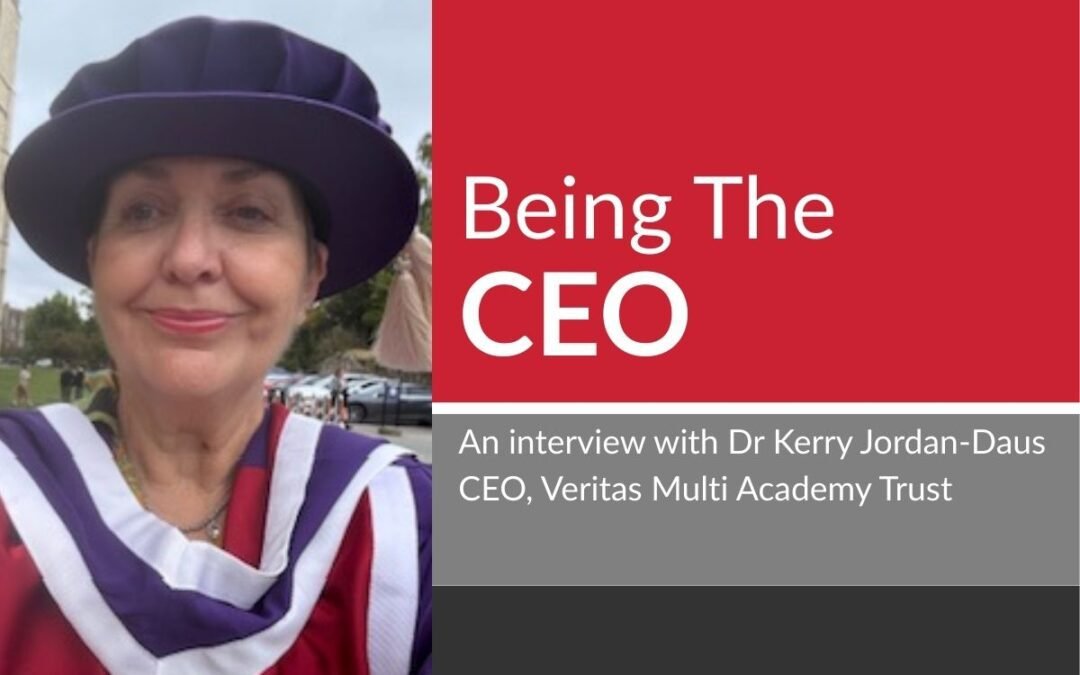As we welcome in the New Year, it’s a fitting time to reflect on and recognise the vital, challenging, and impactful work you do as trust leaders. Your continued dedication helps to shape the current and future experiences of so many children and adults up and down the country, and your ability to navigate complex landscapes with resilience and determination is, as ever, inspiring. Thank you for your unwavering commitment to improving the outcomes and experiences for so many children, young people and their families.
The start of a new year also offers the opportunity to look ahead to an education landscape that has already experienced so much change and will inevitably experience further change still. But in looking to the future, we have the chance to consider what lies ahead and think through our own response to it. As you have likely heard us talk about so much at Forum Strategy: change is inevitable and so often out of our control, but how we navigate it is certainly within our gift. So let’s focus on that.
“change itself is inevitable and often out of our control, but how we navigate it is certainly within our gift to influence. So let’s focus on that.”
We know we’re definitely going to see the introduction of RISE teams, a new Ofsted report card, trust inspections, curriculum change and reform, and a diversification of school improvement mechanisms and models. The publication of the recent Children’s Wellbeing Bill has also seen some fundamental changes put forward, as shared in our Policy Alert from December 17th 2024. We’re also very likely to see continued financial pressures, growing demand around SEND, recruitment and retention challenges, falling pupil rolls (particularly in primaries) and a growing role for technology and AI. In knowing these things, what is it going to take for you as trust leaders to navigate it as effectively as you can?
I believe there are some key areas that will make a big difference in the months ahead.
- How we value and encourage collaboration over competition;
- How we demonstrate the impact and future potential of the trust model, including our use of autonomy and flexibility;
- How we carefully balance innovation and creativity with the need for stability and continuity; and,
- How we continue to build the capacity and capability of current and future leaders across our trusts.
Here are some thoughts below on each of these areas and I base these on the many discussions I’ve had with trust leaders across the country over the past few months.
Valuing and demonstrating collaboration over competition
One of the ongoing challenges we face (and have faced for some time) is pushing back against those who try to encourage and drive competition across the sector, in favour of coming together to create a culture of true and impactful collaboration. Many of you have expressed having experienced this level of, often latent, competition (particularly so at a local level in some areas). You have shared your hopes for a future that values greater collaboration and partnership working instead. So many of the challenges we face as a sector cannot be addressed alone. Genuine place-based leadership and collaboration is essential if we are going to overcome these challenges, maximise opportunities, and ensure our pupils and communities thrive. Indeed, I’ve heard many examples of the tangible steps trust leaders are taking to build collaboration and how you are making it clear there is no place for competition that holds us back. Examples of this include trusts who have developed local and regional working groups to tackle shared challenges; trusts who have developed shared services – including around CPD and specialist leadership support; and trusts who openly offer and share their learning with others – such as open sourcing their school improvement models and mechanisms, attendance strategies, and more – so that others they might learn from their work and apply it in some way within their own trusts. There are so many examples I could list that show how the vast majority of trust leaders are deeply committed to openness and collaboration.
“Many of you have expressed feeling this level of, often latent, competition (particularly so at a local level in some areas) and you have shared your hopes for a future that values collaboration and partnership working instead”
It does feel though, that in some areas this culture of collaboration is being undermined, despite many trust leaders’ best efforts. With reduced government funding to support trust growth and the potential for trusts to be commissioned in future to provide support in areas of particular expertise, the temptation to compete may be higher than ever. And, the introduction of RISE teams poses a potential risk of even further competition being encouraged, as various players bid to provide school improvement services. I urge those developing the RISE team model to consider carefully how it helps to encourage greater collaboration between trusts and, indeed, between trusts and local authorities and other school improvement models, and does not inadvertently generate a culture of competition that prevents sharing of ideas, resources and practice. It is also crucial for trusts and CEOs themselves to resist competing and instead choose to model collaborative practices, showcasing how partnership working can lead to better and more efficient outcomes. Let us focus on collective improvement, sharing expertise and resources openly and striving for shared impact to the benefit of all.
Some reflective questions for 2025:
- How does my trust collaborate with others and how do I model that as a CEO and trust leader? What principles do we use to support effective, impactful collaboration?
- What is our narrative for collaboration within and across organisational boundaries and how do we articulate and model this as part of our trust vision?
- How do we capture and share the impact of the partnerships and collaborations we form?
In 2025, Forum Strategy’s CEO system leadership group will focus on how trusts lead and generate a culture of place-based collaboration across organisations to address some of the big challenges we face as a system. If you’re keen to find out more, please do let me know.
Embracing autonomy
We are aware that current reform plans are feeling disjointed to many, often emphasising national-level solutions and potentially missing the opportunity to reflect a broader range of voices within advisory groups and panels. With this as the backdrop, maintaining a focus on and responsiveness to local needs and communities is paramount, indeed it was one of the main drivers behind the establishment of academies and trusts in the first place.
Whatever is happening nationally, trust leaders can remain responsive to their communities and really champion ‘responsive autonomy’ by demonstrating curriculum innovation, strengthening place-based leadership, and developing ‘pure accountability’ systems – sharing the impact this work has had on children, young people and communities. There are so many examples of this across our network. Even if these priorities are not being championed centrally, they remain absolutely vital to our mission of delivering a high-quality education for all, tailored to local contexts. As a profession of experienced educational leaders, you are best placed to respond to the needs of those you serve – and I hope we continue to hold onto that philosophy (and the government does more to recognise it) in 2025.
Some reflective questions for 2025:
- How does our organisation make the most of the autonomy we have as a trust?
- What examples have we got to demonstrate where autonomy (and flexibility) has had a positive impact for children and young people and communities?
- If there are more centrally driven approaches and reforms in future, what might be some of the ways in which the trust can retain some autonomy and flexibility?
“Whatever is happening nationally, trust leaders can remain responsive to their communities and really champion ‘responsive autonomy’ by demonstrating curriculum innovation, strengthening place-based leadership, and developing ‘pure accountability’ systems and sharing the impact this work has had on children, young people and communities”
Demonstrating the impact of the trust model
It has been made clear that the future of education improvement and positive outcomes for all, is one where different types of models and approaches are going to be encouraged and recognised and the trust model therefore, will become just one part of a system that delivers improvement (rather than being the main or preferred conduit). This, alongside reduced funding available to support schools to join trusts, means that our ability to clearly and articulately make the case for being part of a trust, is critical.
Effective communication about the academy trust model has never been more important. As leaders, you play a key role in demonstrating the added value trusts bring to education – and there is so much to demonstrate. This involves not only presenting compelling data and figures but also winning hearts and minds by sharing stories of impact and the benefits seen and felt by communities. In 2025, let’s make the case for trusts boldly and clearly to the range of audiences who need to hear it, showcasing how they enhance educational opportunities, enable improvement and innovation, and respond to the needs of their communities in doing so. Indeed, this was a key conclusion in our recent #TrustLeaders roundtable on recruitment and retention : we need to do more to recognise and articulate the potential of the model – if maximised well – in addressing some key challenges, not least workload and wellbeing.
Some reflective questions for 2025:
- How are we articulating the case for joining our trust? Why should new schools want to join your trust?
- How are we capturing and sharing the expertise, capacity and capabilities on offer across our trust?
- How are we demonstrating and sharing our impact as a trust and the vast benefits of a trust model?
“As leaders, you play a key role in demonstrating the added value trusts bring to education – and there is so much to demonstrate. This involves not only presenting compelling data and figures but also winning hearts and minds by sharing stories of impact and the benefits seen and felt by communities.”
Balancing innovation with continuity
Innovation is the cornerstone of progress. Finding ways to ensure financial sustainability and meeting evolving expectations – whether from students, staff, or stakeholders – often requires some new and creative thinking. I’ve seen some great examples of trusts setting up traded services and other forms of income generation to help to offset financial pressures; I’ve also seen some brilliant partnerships developed to help trusts in delivering what the community needs (particularly throughout the cost of living crisis) but also in helping to inform and shape the future prospects of children and young people across schools; and I’ve seen trusts embracing AI in ways that are helping their workforce and their students to thrive and learn. There are many more examples and this innovation is only going to become more important as we move forward. Let us continue to pioneer new approaches, ensuring our trusts remain adaptable and forward-looking in a dynamic educational landscape.
However, innovation must also be balanced with continuity and stability so that those we work alongside and those we serve, can remain confident in the trust’s role and future and of course, their role within it. Communities and staff will welcome a sense of calm and stability and indeed we have seen communities look to schools and trusts for this during times of need (the pandemic being just one example of this). So the role for you as trust leaders will be in striking the balance between innovating where it is needed and creating a sense of steadiness and continuity.
Some reflective questions for 2025:
- What are the areas across the trust that need some innovation and creativity and which areas might benefit more from continuity and stability?
- What expertise can you tap into across the trust, local area and nationally to support innovation and creativity where it is needed?
- How are you learning from others across the sector and how are you sharing your practice and learning with them?
Building the next generation of school improvement leaders
Finally, equipping the next generation of school improvement leaders with the skills and knowledge they need to ensure our organisations continue to deliver improvement at scale into the future, is a core responsibility of and opportunity for trust leaders. Developing and utilising the skills, experience and knowledge of all layers of leadership across a trust makes sense both from a capacity perspective and from a scaling one – but this is particularly important when we think about how we are building ‘improvement leadership’ skills at trust level and particularly amongst headteachers.
“equipping the next generation of school improvement leaders with the skills and knowledge they need to continue to deliver improvement at scale effectively, is a core responsibility of and opportunity for trust leaders.”
Within this, the vital role of headteachers needs to be clear and regularly articulated – not just when a new school joins a trust but regularly thereafter. A careful balance is needed to ensure headteachers retain and refine key skills in areas such as HR and finance, while also benefiting from the central support structures trusts provide. This is about creating the pipeline for the next generation of school improvement leaders and CEOs. Our ‘Being The CEO’ report this year reminds us that leading diverse teams of experts is invaluable preparation for senior executive leaders, and we need the very best of this generation of heads to be equipped to step up to executive leadership in time. Let’s focus on developing pathways that nurture and grow both expertise and meaningful collaboration among aspiring executive leaders.
Some reflective questions for 2025:
- How are future school improvement leaders being identified and developed across the trust?
- Is the role of headteachers made clear across the trust and how you will ensure they have central support in key areas without being de-skilled or lack experience in terms of wider ‘organisational leadership’?
- How is the trust’s school improvement capacity, capability and expertise captured and shared? Is your trust’s improvement model ‘codified’ and ready for sharing?
Our Education Leaders Network is focused on helping to build these capabilities, skills and knowledge amongst headteachers, executive headteachers, school improvement leaders and directors of education, offering not only the opportunity to connect with peers across the country but also the wisdom and experience of the network Chair, Frank Norris MBE, and our many and varied contributors across the network sessions and study visits. I am always open to a conversation before people consider joining so please do connect me with your education leaders should they wish to find out more.
The areas I have touched on in this blog are, of course, just some of the areas we believe at Forum Strategy will make the biggest difference in helping you to navigate the months and year ahead as we anticipate change and reform, there will be others. We remain committed to keeping you informed and up to date with the latest developments across the sector, but just as importantly, staying closely connected with you so that we can understand and consider the realities of how they impact at a regional, local and trust level and provide the strategic support you need.
“Together, we can champion innovation, collaboration, and excellence, supporting the education system to thrive and evolve and within this, demonstrating how trusts are a key and critical part of this”
As we embark on another year of opportunities and challenges, let us remember the collective power of our network. Together, we can champion innovation, collaboration, and excellence, supporting the education system to thrive and evolve and within this, demonstrating how trusts are a key and critical part of this. Thank you for your leadership and dedication, and I look forward to seeing you all over the year ahead.
Wishing you all a successful and fulfilling New Year.
Find out more about Forum Strategy’s three National #TrustLeaders Networks – our CEO, COO and Education Leaders networks – here: https://forumstrategy.org/our-networks/ and how you could benefit from our insights, professional development, and support in 2025.


